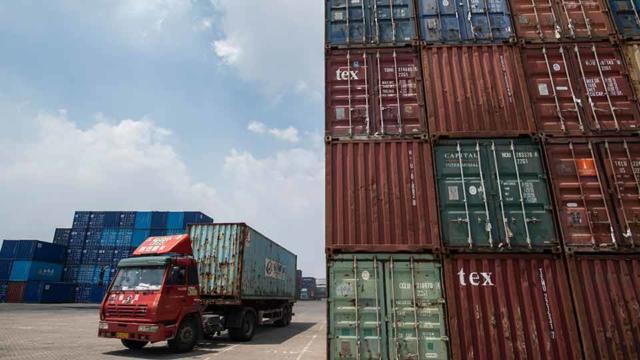Business owners have ended a fifth day lobbying the U.S. government, mainly appealing for exemptions from the tariffs, but occasionally supporting them.
CGTN’s Daniel Ryntjes reports.
President Trump is threatening more duties on another $200 billion of Chinese imports. If they’re imposed, possibly in late September, some Chinese imports, like mandarin oranges will be subject to higher duties up to 25 percent. A major Chinese supplier, the Chic Group supplies fruit companies like Del Monte.
Vivienne Ouyang, the company’s Chief Operating Officer said “25 percent is extremely high. And because mandarin business is a very low margin and 25 percent is maybe a kill…damage the business.”
Representatives of the multi-agency government committee that regulates foreign investments in the U.S. asked the Chic Group whether the U.S. could source mandarin oranges from elsewhere.
The Chic group said that 90 percent of mandarins grown around the world come from China and that the next biggest supplier is Spain. But Spain’s harvest supplies the European market. In other words, tariffs on mandarins will just make the fruit that much more expensive for Americans.
Many of the firms providing testimony said they understand the Trump administration’s motivations, aimed at pressuring China into changing what Washington considers unfair trade practices.
But they said the tariffs will disproportionately impact Americans. The duties will likely have fairly minimal impact on Chinese suppliers, who have already indicated that they won’t absorb the additional costs.
This means U.S. consumers will be paying the extra tax imposed on foreign imports. U.S. officials asked if a country like Vietnam could provide an alternative manufacturing base for consumer goods.
Hun Quach from the Retail Industry Leaders Association said in many cases too much time and effort would be needed. She said, “Moving production to Vietnam could take a considerable amount of time. We want to make sure it’s at the quality that we need. That eco-system already exists and that’s one of the region China has the market dominance.”
In the meantime, Hun Quach who came to the hearing hauling a large basket of consumer staples included in the tariff list agreed that the proposals represented a tax on ordinary Americans.
She fears they will also act as a brake that will stall economic growth, given that consumer spending represents two-thirds of economic activity. She said she saw a ray of hope, encouraged by exploratory talks between U.S. officials and a delegation from China’s Commerce Ministry this week in Washington.
She said a “fruitful dialogue that can be harvested.” But the harvest, she conceded, is uncertain, because of the Trump administration’s reliance on tariffs. “What is the end game?” she asks. “At the end of the day, for our U.S. consumers, we don’t want to be caught in the crosshairs.”
 CGTN America
CGTN America
 Photo from AFP
Photo from AFP
